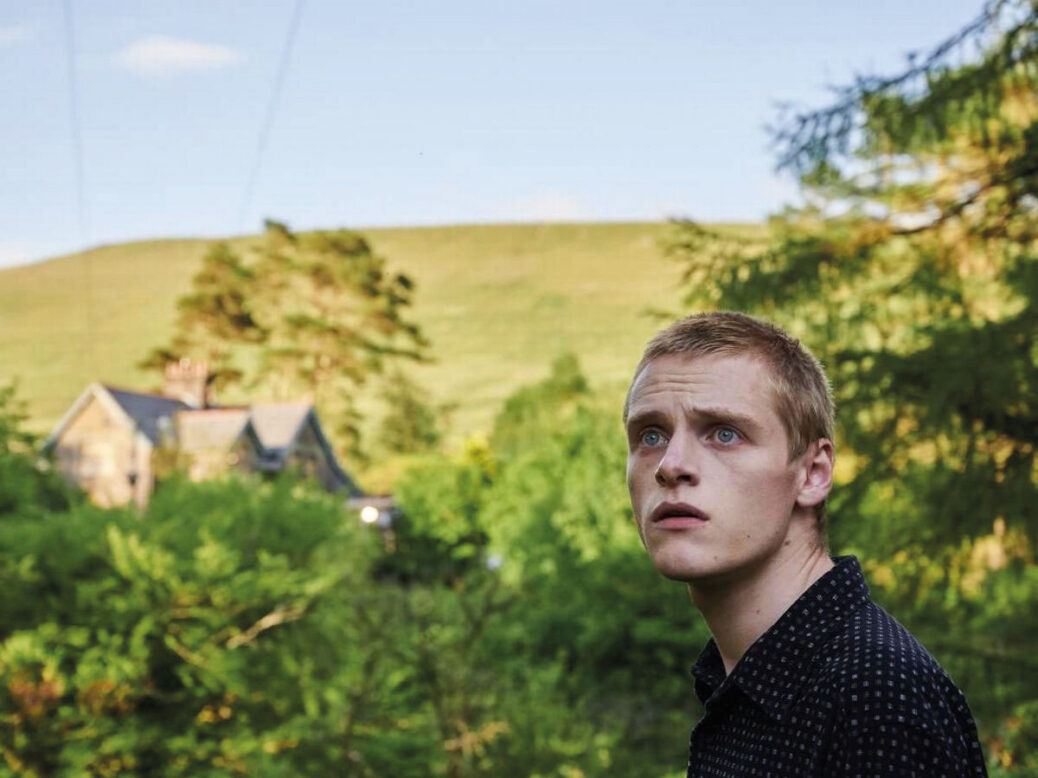
When it comes to Somewhere Boy, my strong advice is: give it a chance. I’ve no idea why it has been chopped into eight 25 minute-long pieces, but my guess is that this will prove to be a mistake on the part of Channel 4. To get hooked on this eerie new drama, the viewer needs a longer immersion: an hour, at least. Yes, it’s running episodes on consecutive nights. But I wonder how much of the audience, having seen the first, will go back for more. If I hadn’t been writing this, I would have given up myself, which would have been a great pity. Pete Jackson’s series – his first for television – is a fairy tale for our times: a tabloid news story refashioned by a guy who appears quite unselfconsciously to be channelling the Brothers Grimm, Dennis Potter and Richard Carpenter all at the same time. Honestly, it’s really very rich and strange.
When I say Richard Carpenter, I don’t mean Karen’s big brother. I mean the man who created the beloved children’s TV show Catweazle, which ran on ITV between 1970 and 1971. Catweazle was a hapless 11th-century magician who’d unaccountably pitched up in the year 1969; there, he confused inventions such as the telephone (“the telling bone”) and electricity (“electrickery”) with sorcery. Somewhere Boy also comes with an element of time travel, though it is not, in this case, literal.
[See also: Please, no more adaptations of Jane Austen]
For the first 18 years of his life, Danny (brilliantly played by Lewis Gribben) has been kept prisoner in a remote house somewhere (judging by the accents) in the north of England by his father Steve (Rory Keenan), his only entertainments indoor golf and old black and white movies. But now his father is gone, and this boy who knows nothing of Snapchat or takeaway pizzas must suddenly contend with the modern world.
How did Steve hide his son away? Though this is a story of mental illness and coercive control, no lock and key were involved. Danny’s mother died, we learn, in a car accident when he was a baby. After this, Steve was never the same. Reclusive himself, he was determined to “protect” his son, something he did by means of an elaborate lie: a charade that probably seemed innocent enough at first, but quickly became both onerous to perform, and extremely cruel. There are monsters outside, he told Danny, and if you go out, they’ll kill you. I know. This sounds preposterous. But in Jackson’s hands, you willingly suspend your disbelief. Here is gaslighting – a word now widely misused – in its real sense. If Danny ever questioned the situation, his father’s vehemence was so violent, he would end up doubting only himself.
[See also: Sky’s new adaptation of The Midwich Cuckoos is more psy-fi than sci-fi]
Danny is taken to live with his aunt, Sue (Lisa McGrillis) – he shares a bedroom with his cousin Aaron (Samuel Bottomley, also excellent) – and there he begins the process of trying to adapt. It’s not easy. Even once he has given up on the existence of monsters (Aaron puts him right), the idea that his father didn’t have his best interests at heart remains unbearable to him. It’s touching to see him wide-eyed in the world, by turns terrified and comically upfront. All he knows of human relationships he has learned from films such as Brief Encounter and Casablanca. The movie tunes still play in his head often, and in a flashback, we see him dance with his father to the old song “El Paso” (“Out in the west Texas town of El Paso/ I fell in love with a Mexican girl…”) – a scene that, like several others, brings Dennis Potter’s The Singing Detective to mind.
Somewhere Boy soon becomes gripping: a real monster (spoiler alert) will appear, in the form of the man who knocked down Danny’s mother. But Jackson’s homage-filled script is so subtle and clever, this plot line is almost, if not quite, a sideshow. Jackson wrote his series during the pandemic, and on top of everything else, it works as an extended metaphor for those long, sad months. We all remember the struggle to get back to normal (whatever normal is). Our enforced seclusion still weighs heavy on our hearts whenever we recall it.
Thanks to this, Somewhere Boy isn’t wholly enjoyable, and some will doubtless question its originality. But I admire its ambition, and can’t wait to see what Jackson does next.
Somewhere Boy
Channel 4, 16 October, 10pm; now on catch-up
[See also: Bergman Island seems intolerably meta – but it’s not just for cinephiles]
This article appears in the 19 Oct 2022 issue of the New Statesman, State of Emergency





